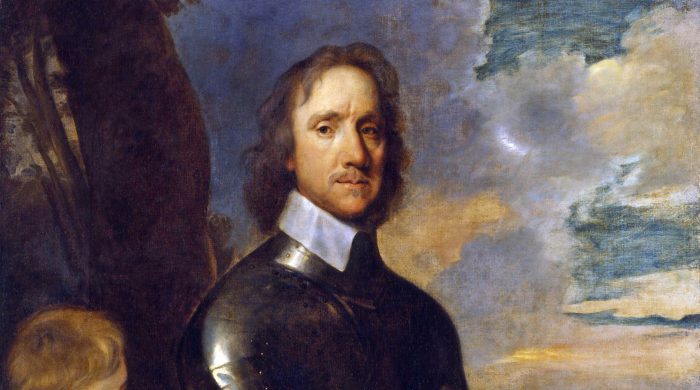If you’re after a long read to savour over Saturday coffee, I heartily recommend Ferdinand Mount’s luxuriant LRB review of Providence Lost, Paul Lay’s new history of the Protectorate. Its opening scenes set modern laments about political civility firmly into context: Cromwell dissolving the Long Parliament, flinging insults at MPs — ‘drunkard’, ‘whoremaster’ — booting out the speaker, then flinging the mace into his quarters as a ‘bauble’.
Cromwell comes across as déclassé, foul-mouthed and full of resentment, wholly certain of his divine mission and indifferent to law or precedent. As Protector, he threw anyone who opposed him into the Tower, and is reported to have dismissed the authority of Magna Carta as ‘Magna Farta’:
Cromwell remains an uneasy figure even in English history today. Was he a reformer, tearing at the cobwebs of antiquated monarchism and paving the way for modern liberal democracy? Or a purple-faced, manic-depressive zealot who fought Catholicism to defend his friends’ holdings of former monastery lands, perpetrated ethnic cleansing in Ireland and presided over a military dictatorship? Both appear to have some qualified truth, a fact that makes Cromwell a difficult topic for narratives of either national self-aggrandisement or self-flagellation.
Mount does not shy away from Cromwell’s aversion to popular rule: he purged Parliament six times to avoid votes against his plans. Nor is he indisputably a reformer tidying up after a feckless Charles I. Rather, had Charles’ reign not ended when it did, England might have had an Office of Health running state-funded hospitals nearly four centuries ahead of the NHS.
An early advocate of religious tolerance? Not so much: “His actual legislation continued to outlaw papists and Anglicans on the one hand and Quakers and sectaries on the other”, while his readmittance of Jewish people to England was motivated less by a love of diversity and inclusion than a desire to convert them to Christianity (and secure new funds for his army).
Mount suggests that if Cromwell was an early harbinger of anything it was more in his early elaboration of the idea that entire countries may have a ‘manifest destiny’:
With a brisk canter through Civil War historiography, Mount avoids easy analogies with contemporary politics, highlighting instead the murkiness of a political age which — like the pandemic today — seem endlessly re-tellable to prove any pre-existing political bias you please. Is there anything in our political settlement today that could not have been achieved without the slaughter? Lay, and Mount, leave the question open.











Join the discussion
Join like minded readers that support our journalism by becoming a paid subscriber
To join the discussion in the comments, become a paid subscriber.
Join like minded readers that support our journalism, read unlimited articles and enjoy other subscriber-only benefits.
Subscribe